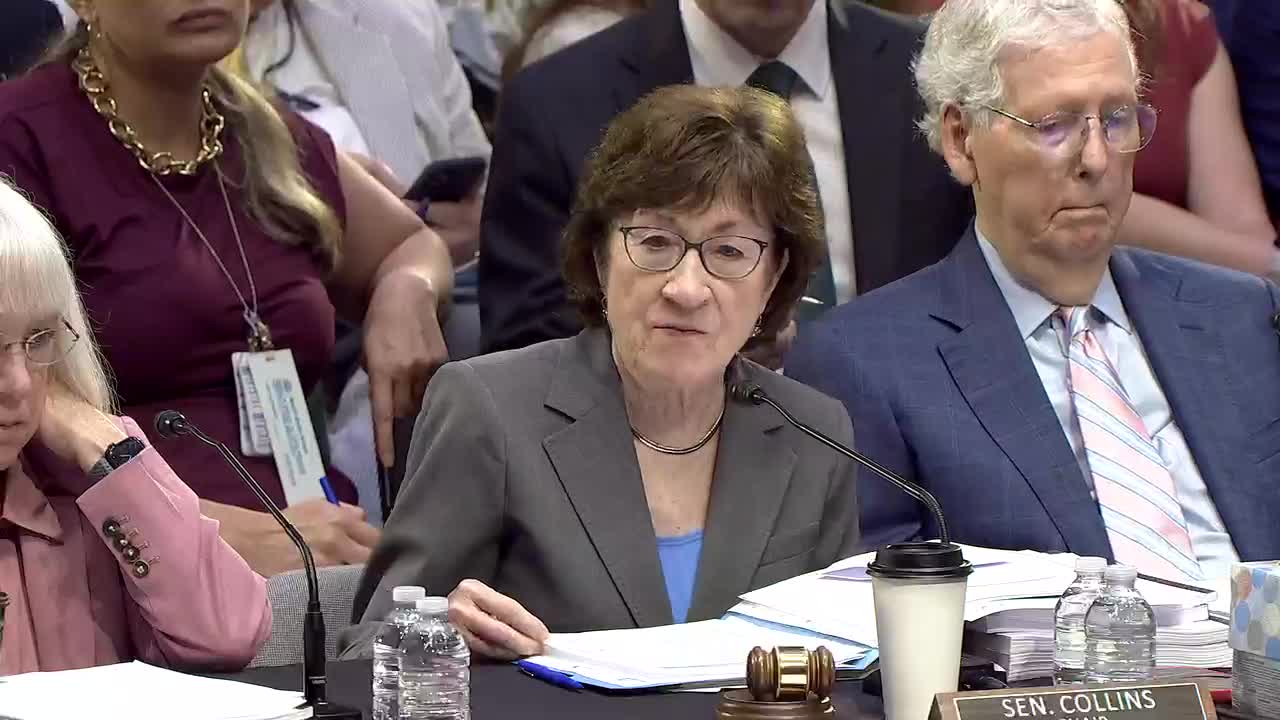Senate Committee Votes Down Filibuster Amendment Amid Defense Appropriations Bill Discussion
July 31, 2025 | Appropriations: Senate Committee, Standing Committees - House & Senate, Congressional Hearings Compilation
This article was created by AI summarizing key points discussed. AI makes mistakes, so for full details and context, please refer to the video of the full meeting. Please report any errors so we can fix them. Report an error »

The U.S. Senate Committee on Appropriations convened on July 31, 2025, to conduct a Full Committee Markup of the Defense and Labor, Health and Human Services, and Education Appropriations Acts. The meeting focused on reviewing amendments and voting on key provisions within these critical funding bills.
The session began with a discussion led by Senator Murr, who clarified that the recent Democratic proposal was not aimed at eliminating the filibuster but rather transitioning to a talking filibuster. This change would allow for a more public process, enabling American citizens to engage with the legislative discussions. Senator Murr emphasized the importance of transparency in the legislative process.
Following this, Senator Kennedy introduced an amendment concerning the committee's authority over rescissions, stating that any rescissions should be managed within the committee rather than under the 1974 Impoundment Control Act. This amendment sparked a roll call vote, which resulted in 14 votes in favor and 15 against, leading to its rejection.
As the meeting progressed, Chair Collins noted the conclusion of the amendment discussions and suggested a brief recess for members to cast their votes. However, she quickly adjusted the plan, indicating that the committee would proceed with opening statements on the next bill after the voting concluded.
The committee successfully reported the Defense Appropriations Bill favorably, with Chair Collins commending the efforts of Chair McConnell and Vice Chair for their contributions. The meeting then transitioned to the consideration of the Labor, Health and Human Services, and Education Appropriations Bill, marking a significant step in the legislative process for these essential funding measures.
Overall, the meeting underscored the committee's commitment to advancing appropriations while navigating complex legislative procedures and fostering public engagement.
The session began with a discussion led by Senator Murr, who clarified that the recent Democratic proposal was not aimed at eliminating the filibuster but rather transitioning to a talking filibuster. This change would allow for a more public process, enabling American citizens to engage with the legislative discussions. Senator Murr emphasized the importance of transparency in the legislative process.
Following this, Senator Kennedy introduced an amendment concerning the committee's authority over rescissions, stating that any rescissions should be managed within the committee rather than under the 1974 Impoundment Control Act. This amendment sparked a roll call vote, which resulted in 14 votes in favor and 15 against, leading to its rejection.
As the meeting progressed, Chair Collins noted the conclusion of the amendment discussions and suggested a brief recess for members to cast their votes. However, she quickly adjusted the plan, indicating that the committee would proceed with opening statements on the next bill after the voting concluded.
The committee successfully reported the Defense Appropriations Bill favorably, with Chair Collins commending the efforts of Chair McConnell and Vice Chair for their contributions. The meeting then transitioned to the consideration of the Labor, Health and Human Services, and Education Appropriations Bill, marking a significant step in the legislative process for these essential funding measures.
Overall, the meeting underscored the committee's commitment to advancing appropriations while navigating complex legislative procedures and fostering public engagement.
View full meeting
This article is based on a recent meeting—watch the full video and explore the complete transcript for deeper insights into the discussion.
View full meeting